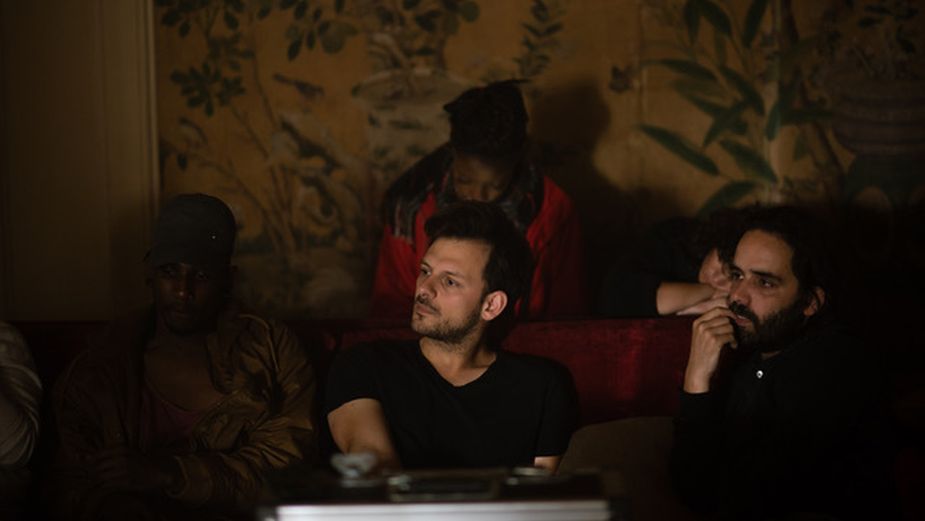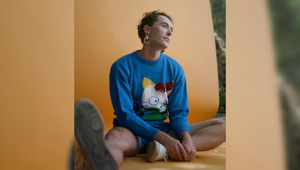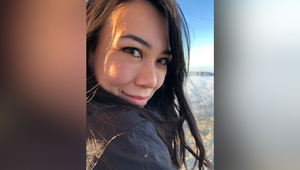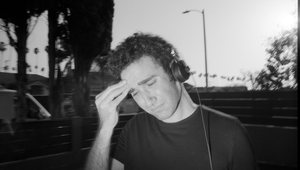
The Directors: Norman Bates

If you love that moment the engines fire up at take-off, then let the duo known as Norman Bates pilot you through life's most incredible adventures. Experience, courage and obsessive craftsmanship have moulded these Belgian filmmakers into a style that reflects humanity's collective glory. Expect big, uplifting and profound edits that feel like an entire life lived.
Name: Norman Bates
Location: Based in Brussels, Belgium
Repped by/in: Ruffian in USA, Iconoclast in Germany, Lovo in Belgium
LBB> What elements of a script sets one apart from the other and what sort of scripts get you excited to shoot them?
NB> We always get excited when we feel a strong emotional engagement in the core idea of a script, or at least a touch of humanity. And, although it might sound like a big cliché, we do think that the best ads speak of a truth, something that we all recognise. It is plainly simple, but we like to tell stories that touch people in one way or another.
When we started directing more fiction pieces, we noticed that we naturally became more attracted to stronger conceptual work. And we think that these are the better creative ideas to follow.
LBB> How do you approach creating a treatment for a spot?
NB> Before even putting a word on paper, we first take some time to brainstorm between the two of us. Setting the right tone and really defining the essence of the creative idea is always our starting point. From there on, we take the time to share ideas.
That is one of the great advantages of being a directing duo, you have a sparring partner, someone who can embellish the good parts and destroy the crap that isn’t worth sharing with anyone else.
When it comes to putting a treatment together, we try to make it as personal as possible. People might like it or not, but at least we come to the table with a specific point of view – which is the basis of good work.
Besides being personal, we feel the urge to be original, or at least, to try to be. That is why we try to steer away from using too many references to other movies and commercials. It is our obligation to come up with something original, instead of copying that one cool reference that everybody is using at the same time ;-)
LBB> If the script is for a brand that you're not familiar with/ don’t have a big affinity with or a market you're new to, how important is it for you to do research and understand that strategic and contextual side of the ad? If it’s important to you, how do you do it?
NB> Understanding the brand and the market is of course essential. And although some directors may see a call with an agency as a necessary evil, we like to look at it as an opportunity to learn more about the creative process, the brand, and the expectations. It is like creating a backstory when you write a fictional character for a movie. How can you make him feel like a real person if you don’t know anything about him? The moment you understand the thought process behind a creative idea is the moment you can start contributing with some interesting ideas.
LBB> For you, what is the most important working relationship for a director to have with another person in making an ad? And why?
NB> Filmmaking in general is a collaborative process, so the same goes for making an ad. Producers, agencies, clients; we should all look in the same direction. But it is probably no surprise that we made our best ads with creatives who really believed in us. So, we would say that we value their input and trust a lot.
Having said that, we are very selective with the cinematographers that we work with because it is important to have someone with whom you connect. For that reason, we happen to do a lot of repeats with cinematographers.
LBB> What type of work are you most passionate about - is there a particular genre or subject matter or style you are most drawn to?
NB> We don’t have one particular subject that we favour, the same goes for genres. But as long as it moves us – we love to dream about it.
LBB> What misconception about you or your work do you most often encounter and why is it wrong?
NB> At the beginning of our career, we were labelled as ‘manifesto directors’. Probably because we did a ton of those and once you’re successful at doing something; people want you to repeat the same trick over and over. Like every creative person, we don’t like to be pigeonholed and throughout the years we have made lots of other types of ads. As a commercial director, it is important to pick up on the trends that are evolving around you, but it is equally important to keep moving and to change, in order to stay relevant– especially when people start labeling you.
LBB> What’s the craziest problem you’ve come across in the course of a production – and how did you solve it?
NB> For our Netflix series ‘Into the Night’ we had a lengthy hijack/terrorist sequence inside an airport. You can imagine that this was a bit of a challenge, to say the least. No airport security likes to see people playing around with guns, even if it’s a movie set with fake dummy guns. We were already thinking about building the airport set, but our producers managed to close a part of a local airport in Skopje, Macedonia for two nights. Of course, it was not an open bar, there were a lot of restrictions.
So, we decided to run it like a military operation: shooting all scenes with three units simultaneously, knowing that everything had to be shot before the first flight, the next morning. Shooting over-time was not an option. It is the only time that we saw everyone staying so focused on set ;)
LBB> How do you strike the balance between being open/collaborative with the agency and brand client while also protecting the idea?
NB> It’s about being open and personal. If you do so, people will trust you and that is the only way that you can make good work.
There is no need to keep a hidden agenda, because if you do… you will always lose. We believe it’s wrong if you only care about a ‘cool’ director’s cut for your own reel. People hire us to make the best possible film for their brand, so it’s something that we take seriously. Of course, there should be room for experimentation and trying out different options. But in an ideal world, this happens in an environment of mutual trust and openness.
LBB> What are your thoughts on opening up the production world to a more diverse pool of talent?
NB> If you think about it, it is strange that it took such a long time for this to happen, right? But we can only cheer at the fact that new voices are appearing on the scene and it feels natural that creatives, actors, and filmmakers reflect the diversity of society.
LBB> Your work is now presented in so many different formats - to what extent do you keep each in mind while you're working (and, equally, to what degree is it possible to do so)?
NB> You are right, these days you are never sure in what format your ad will be presented to its audience. But, we have never seen this as a problem. Cameras capture images in such a high resolution that you can easily find solutions to different formats, even with re-scaling if needed. But you do need to keep in mind that ideas sometimes have to translate to a horizontal and a vertical format.
LBB> What’s your relationship with new technology and, if at all, how do you incorporate future-facing tech into your work?
NB> We find it fun to experiment with new technologies and interesting to see how brands and creatives try to find new ways of connecting with viewers outside the 30-sec TV format.
LBB> Which pieces of work do you feel really show off what you do best – and why?
‘Dare to Sponsor’: We love this cause. The film made a big fuzz, not only by winning awards, and it actually attracted a lot of sponsors to some Special Athletes. The idea was to create an inclusive campaign, where Special Olympic athletes are treated the way they should be, without being patronized. In short, the idea wonders where their sponsors are and it challenges potential sponsors to do their part.
Double A ‘Make your Mark’: It helps if the insight of a campaign is genuine and meaningful, this was the case for Double A. It’s a humble and poetic ode to the importance of paper in our daily lives. We wrote the script with the creative team and we shot the whole production near Brussels, where we both live.
Samsonite ‘Enjoy the second’ - Making an ad where the product is naturally integrated is always the aim, but it’s easier said than done. For this campaign, we tried to capture the magical experience of traveling with your suitcase as your trusted companion. We asked ourselves how we could really bring across those magical stories and observations that we would like to share with people at home. We went on a trip ourselves, shooting various versions of the film over 12 days, traveling to four continents.
‘Into The Night’ - A Netflix original series with a global launch. This trailer/show highlights another side of our skillset. In this case, we tried to humanise a high-concept survival thriller. There was a lot of post involved and we don’t want to give too much away. But for this show, we really built an A320 and we had it on a movable platform so it could give us that typical roll motion of an aircraft. We could also make it crash land and take-off. I think we spent over six weeks on a real plane – who else can say that?










